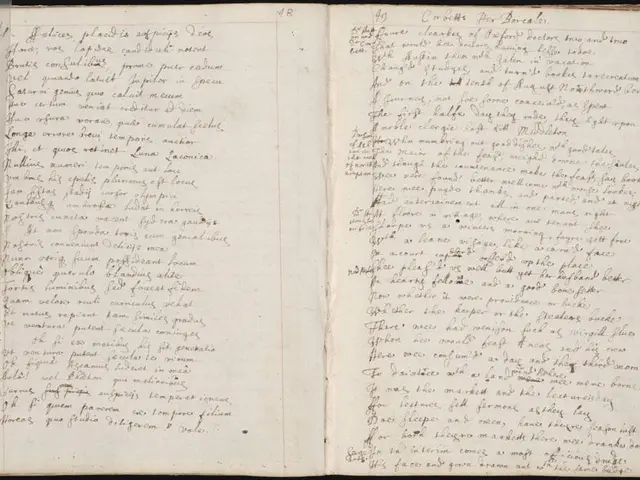Social media ban sought for minors by Özdemir
In the run-up to the Baden-Württemberg state election, Green Party's top candidate, Cem Özdemir, has proposed a significant change in the way social media platforms are used by children and young people. Özdemir suggests that social media platforms like TikTok and Instagram should be off-limits for those under the age of 16.
This proposal comes in response to concerns from young people about the lack of clear rules in social media, and Özdemir believes an age limit of 16 years old is appropriate for these platforms. He emphasizes the need for clear rules to help young people navigate social media responsibly.
Özdemir acknowledges that parents and teachers often find it challenging to manage their children's social media use, and he suggests that a ban on unaccompanied use could be a solution. He uses the analogy of alcohol to argue against the notion that age limits cannot be effectively enforced. Just as we don't give alcohol to toddlers, we should not allow young children unrestricted access to social media, he says.
The latest response from social media platforms regarding this proposed age limit aligns with emerging global regulatory trends. Platforms including Facebook, Instagram, Snapchat, TikTok, X, and YouTube are set to implement measures to prevent under-16 users from creating or maintaining accounts. This comes in the wake of laws being introduced in Australia and supported by similar initiatives elsewhere.
From 10 December 2025, Australian law mandates that age-restricted social media services must take reasonable steps to prevent users under 16 from having accounts. This involves platforms implementing age verification and enforcement mechanisms, with significant fines (up to $49.5 million) for non-compliance. These platforms have publicly acknowledged the need to comply with these regulations, indicating a major shift toward protecting young users by restricting their early access to social media.
This regulatory environment reflects the political push seen in Europe, with lawmakers like Özdemir advocating for similar age limits and protections. The growing consensus toward protecting children and young people from potential harms associated with early social media exposure is evident in the stricter age verification laws being enacted or considered in other regions like the UK and US.
In conclusion, Özdemir's proposal for an age limit on social media use is gaining traction, with social media platforms preparing to comply with strict age-related access controls. This shift towards protecting young users demonstrates a growing consensus towards ensuring a safer digital environment for children and young people.
References: [1] dpa/mp [2] [Link to news article 1] [3] [Link to news article 2] [4] [Link to news article 3] [5] [Link to news article 4]
- The Green Party's proposal for an age limit on social media use, particularly for platforms like TikTok and Instagram, is in line with emerging global regulatory trends.
- It's apparent that political push and regulations, such as those already enacted in Australia, are driving social media platforms to implement measures preventing users under 16 from creating or maintaining accounts.
- This shift in policy-and-legislation toward protecting young people from potential harms associated with early social media exposure aligns with the general-news premise that a safer digital environment for children and young people is becoming a pressing concern in Europe, the UK, and the US.







